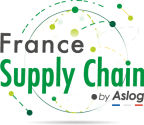3ᵉ year Grande Ecole program - SCOM Supply Chain & Operations Management specialization
CentraleSupelec, Université Paris Saclay - Gif-sur-Yvette(91)

The SCOM Mention, the 3ᵉ year specialization of the CentraleSupélec Engineering Curriculum, focuses on Operations Management: Production, Industry, Supply Chain, Purchasing. Themes addressed in an end-to-end vision of the Supply Chain. The SCOM specialization is the second most popular among students, just after the Artificial Intelligence specialization at Centrale. The Supply Chain community has every reason to be proud of the visibility and attractiveness of the Operations & Supply Chain professions!
Admission
Eligibility criteria
- The course is designed for engineering students motivated by the field of operations management, with a view to building a career in industry or consulting in this area.
Admission process
- Admission based on a dossier (including academic results and career plan) and an interview with the applicant.
Where students come from
- Students come from CentraleSupelec or other national or international engineering schools with which we have academic agreements.
Teaching
Domains
- Supply Chain
- Logistics
- Purchasing
- CSR
- Digital
Main themes
- The Mention SCOM Supply Chain & Operations Management is the 3ᵉ year specialization of the CentraleSupélec Engineering Curriculum, focusing on Operations Management professions: Production, Industry, Supply Chain, Purchasing.
- These themes are addressed in the program from a broad, end-to-end Supply Chain perspective. CentraleSupélec engineering students in the SCOM specialization are trained to build and implement a high-performance Supply Chain that is agile, adapted to the company's strategy and business model, serving customers, creating value and contributing to optimizing profitability, while respecting the environment and people. The SCOM specialization thus forms a unique community of high-level engineers with a wide range of qualities: curiosity, creativity, analytical and technological mastery, a human touch, a taste for teamwork, international and intercultural openness.
- Operations, Production and Supply Chain Management is taught at the School by a faculty with 23 years of expertise, made up of both academics and industry experts.
- The SCOM specialization covers all industrial sectors, with an advanced scientific and technological approach, based in particular on diagnostic and problem-solving techniques, data analytics, optimization, simulation...
- The teaching team is pragmatic and pedagogical, with strong expertise in industrial management, lean and operational excellence, strategic and tactical supply chain optimization, demand planning, demand forecasting, flow control and inventory management...
- The teaching staff share their know-how, combining method and creativity, to make the SCOM specialization an intellectually stimulating place of exchange, in a friendly and caring spirit.
Organization
Alternating rhythms
- 2 days in the company, 3 days in the classroom during a normal week. 6 months in the company for the "internship" part
Initial curriculum
- Internship period: May to December, 23 weeks min.

- Type of organization : Engineering school
- Level of diploma obtained: Bac +5
- Language: Part of the course is in English
- Ranking: Shanghai 2024, 12th in the world
- Accreditations/labels: CGE (Conférence des Grandes Écoles), CTI (Commission des Titres d'Ingénieurs)
Standardized European credit system facilitating the comparison and equivalence of diplomas within the European Union.
Set up in 2001, the CEFDG assesses the quality of business school courses, guaranteeing quality control of Master's degrees, under the supervision of the Ministries of the Economy and Higher Education.
Awarded to certain Bac +5 diplomas, issued by the French government on the recommendation of the CEFDG, it facilitates European mobility without being confused with the national Master's degree, reserved for French universities.
A Bac +6 diploma, accessible after a Bac +5 or an M1 with 3 years' experience, aimed at acquiring expertise or dual skills, with a compulsory internship and strong professional involvement.
Source: Conférence des Grandes Écoles.
A Bac +5 diploma, accessible after Bac +4, focused on an international career. It includes 50% foreign-language teaching, 450 hours of classroom time and a minimum 4-month internship.
Source: Conférence des Grandes Écoles.
1-year professional training program for experienced executives with 6 years' experience (10 years for the Executive MBA), often part-time and continuing education, unregulated but accredited by the AMBA for the best programs.
It concerns the school as a whole (operations, pedagogy, premises, teachers), but does not certify diplomas, a role reserved for the Visa.
Lists all state-recognized diplomas, titles and certificates with official professional value. It guarantees that the certifications listed meet the needs of the job market.
Enables anyone in employment to obtain a professional qualification (diploma, title or certificate) by valorizing their experience, whether professional or extra-professional. The certification must be registered with the RNCP.
Source : France travail
Awarding of a diploma by a state-recognized private establishment after 5 years of existence, following an inspection verifying the quality of the training, admission and award of the diploma.
This American label, created in 1916, is an accreditation that rewards business schools for the quality of their management training.
Source : Dimension Commerce
A British label guaranteeing the quality of leading-edge executive programs offered by business schools. By 2022, there will be 20 AMBA-certified schools in France.
Association (under the French law of 1901) of leading engineering, management and multiple or specific higher education schools, all recognized by the French State, awarding a diploma of at least 5 years' study after the baccalauréat and conferring the grade of Master, as well as, for some of them, a national diploma.
Source: Ministry of Higher Education and Research.
Association of engineering, management and higher education schools, awarding state-recognized Master's-level degrees after at least 5 years of post-baccalaureate study.
Source: Ministry of Higher Education and Research.
National accreditation standards for training organizations wishing to prepare and present candidates for professional certifications in the metallurgy branch.
Since 1934, this independent organization has been mandated by French law to evaluate all engineering training programs, develop the quality of training and promote the title and profession of engineer in France and abroad.
Source : CTI
Qualification leading to the signature of a multi-year contract between the State and the recognized institution, setting strategic objectives to meet national priorities in higher education and research.
Source: Ministry of Higher Education and Research.
New label from EFMD (EFMD Programme Accreditation System) launched in August 2019, which allows an EQUIS-accredited institution to focus on one of its programs that it deems particularly strategic.
Source : Studyrama
Created in 1997, this European label is awarded by EFMD to business and management schools for a period of 3 or 5 years.
Independent public authority assessing higher education and research structures, and supporting quality improvement in France through analysis, evaluation and recommendations.
Source : HCÉRES.
CFA organizations recognized by leading engineering schools to train engineers through work-study programs.
A competitive cluster for transport, mobility and logistics based in the Hauts-de-France region.
This recent label enables CGE members to gain recognition for their expertise in digital technology, particularly in the field of teaching and distance learning, both in France and abroad.
Source : CGE
This service certification awarded by SGS is recognition by an independent third-party organization of the company's commitment to offering its customers quality services, meeting the characteristics defined in a set of standards.
Source : SGS
Mark certifying the quality of the process of training, skills assessment, VAE and apprenticeship training providers, guaranteeing their compliance with quality requirements.
Source: Ministère du Travail, du plein emploi et de l'insertion.
A 4-module course leading to certification in industrial flow and operations management, sharing internationally recognized methods and tools for mastering logistics processes.
A 132-question reference framework and audit methodology for assessing and improving supply chain performance, accessible via auditor certification and a junior version for students.
This unique standard for assessing and certifying Supply Chain skills enables all managerial professionals to validate their skills and identify potential areas for development.

